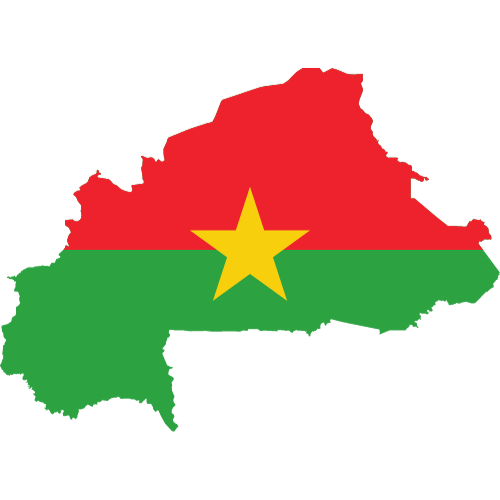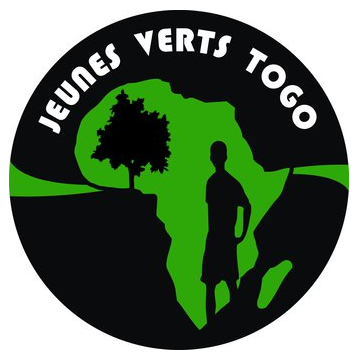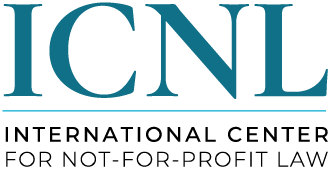Burkina Faso
WEST AFRICA CIVIC SPACE INDEX
Burkina Faso grapples with significant challenges in its civic space, despite pockets of progress in recent years. The analysis, informed by data from interviews, surveys, and various sources, underscores major restrictions on fundamental dimensions such as freedom of assembly, expression, association, rule of law, and human rights protections. This paints a stark picture of obstacles impeding the realization of civic freedoms.
Political instability, conflict, and a humanitarian crisis have contributed to the tightening of civic space in Burkina Faso. Notably, the country witnessed its second military coup within eight months in September 2022, leading to increased restrictions on civic freedoms. The junta imposed bans on protests, suspended political party activities, and intensified its crackdown on dissent. This has further complicated Burkina Faso's security and humanitarian situation.
Major concerns include arbitrary bans on protests, intimidation of journalists and activists, restrictive regulations on civil society organizations (CSOs), corruption in government institutions, political exclusion of opposition groups, limited CSO participation in policymaking, widespread human rights abuses, and uneven access to justice. The recent surge in attacks on journalists and civil society groups has fostered a climate of fear.
While some progress was evident following democratic reforms in the 1990s, responses suggest a deterioration of civic space in Burkina Faso amid recent political instability, violence, and conflict. Fundamental reforms are urgently needed to translate democratic principles into an open and inclusive civic space.
Despite these challenges, Burkina Faso has a robust tradition of trade unionism that persistently advocates for rights in the face of restrictions. Leveraging this experience and addressing limitations on freedoms could play a crucial role in mitigating the severe constraints on civic space.
Indicator Assessments
Freedom of Assembly:
Authorities in Burkina Faso impose arbitrary bans on protests and utilize excessive force against demonstrators. While the legal framework is adequate, poor implementation stifles peaceful dissent.
Freedom of Expression:
The majority of media in Burkina Faso is government-controlled, leaving little room for independent political reporting. Journalists face common harassment and intimidation, exacerbated by restrictive defamation laws.
Freedom of Association:
CSOs face burdensome registration requirements and bureaucratic hurdles. Existing laws fall short in fully enabling CSO independence.
Rule of Law:
Pervasive corruption in government institutions, including the judiciary, undermines the rule of law. Arbitrary arrests are commonplace, and access to justice is uneven. The judiciary lacks independence. Corruption is widespread, eroding governance. Abuses by security forces occur with impunity.
Political Participation:
Recent challenges have diminished the credibility of elections, with exclusions of opposition groups. Improvements are needed in voter registration and the political inclusion of marginalized groups.
Civil Society Participation:
The space for CSO input into policymaking is highly limited. Public consultations are rare and perfunctory.
Human Rights Protection:
Despite constitutional protections, Burkina Faso experiences widespread rights abuses, including crackdowns on dissent. Discrimination against vulnerable groups persists, accompanied by uneven access to justice.
Anti-Corruption and Transparency:
Corruption remains high despite some institutional frameworks. Transparency in the government and access to information are limited, and protections for whistleblowers are inadequate.
Safety of Activists:
Activists face threats, arbitrary arrests, and violence, fostering a climate of fear. Impunity for attacks persists despite legal protections.
Access to Information:
The implementation of access to information laws is poor. Making more government data publicly available is crucial for improving transparency.
Challenges and Opportunities
Burkina Faso confronts intertwined challenges encompassing restrictions on civic freedoms, corruption, instability, and violent conflict. Nevertheless, opportunities for progress arise from the nation's robust traditions of trade unionism and civil society.
A paramount challenge involves arbitrary restrictions on fundamental freedoms, necessitating the removal of undue limitations and ensuring these rights in both law and practice. Rampant corruption within institutions has corroded governance and the rule of law, highlighting the need for stronger enforcement of anti-corruption laws and enhanced protections for whistleblowers and journalists to improve transparency.
The conflict situation has facilitated crackdowns on dissent and exacerbated human rights violations, particularly for marginalized groups. Ensuring accountability and oversight of security forces stands out as a critical imperative. Burkina Faso's relatively robust civil society, particularly its active trade unions, persists in advocating for rights despite restrictions. Clearing legal and administrative hurdles for CSOs would empower them further.
Leveraging Burkina Faso's previous experience with democratic reforms provides a foundation, yet fundamental reforms are paramount to translating democratic principles into practice and consolidating democratic institutions against prevailing instability.
Moreover, the country's social cohesion and community-level solidarity serve as strengths to manage conflict. However, addressing inter-communal tensions demands inclusive governance and equitable resource distribution.
In summary, addressing interconnected challenges, including lifting restrictions on civic freedoms, tackling corruption, fostering inclusive governance, and empowering civil society, is imperative. These steps are crucial for translating democratic principles into an open civic space in Burkina Faso.
Based on analysis of the 12 indicators, Burkina Faso's civic space can be classified as “Constricted.” Severe restrictions persist across key dimensions, despite some limited openings.




